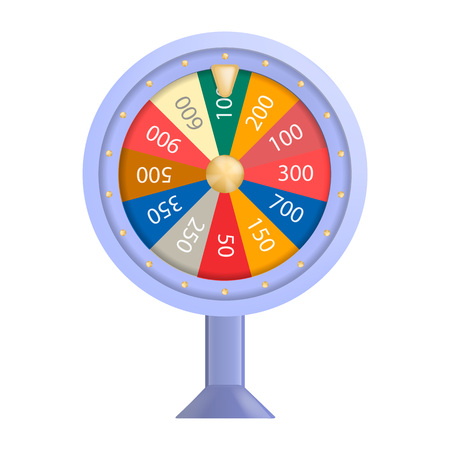Introduction to the Wheel of Fortune
The Wheel of Fortune, a symbol deeply rooted in the tapestry of Western thought, has long captivated minds with its themes of fate and unpredictability. In Britain, where history intertwines with folklore and superstition, the concept of fortune’s wheel carries particular resonance. Originating from ancient Roman philosophy and later woven into medieval British literature and art, the Wheel of Fortune represents life’s ever-turning cycle—where one’s fortunes may rise or fall at a moment’s notice. This enduring emblem invites reflection on destiny and luck, themes that have shaped both individual lives and the collective British psyche across centuries. Whether appearing in Shakespearean drama or as a motif in local customs, the Wheel reminds us that while we may strive for control, much remains subject to forces beyond our command. In the context of British culture, this acceptance of fate is often softened by humour, ritual, and a keen sense of irony, making the Wheel not only a marker of uncertainty but also a source of shared wisdom and resilience.
2. The Concept of Destiny in British Culture
In the United Kingdom, the notions of destiny and fate have long held a significant place in both the collective consciousness and cultural expressions of its people. Rooted in centuries-old traditions, these ideas permeate British literature, folklore, and even everyday speech, revealing a complex relationship with the idea that life’s path may be preordained or influenced by forces beyond human control.
Classic British literature abounds with references to destiny. Shakespeare’s tragedies, such as “Macbeth” and “Hamlet,” explore the tension between free will and fate, often suggesting that an individual’s choices are subtly guided by unseen hands. Similarly, in the works of Thomas Hardy or Charles Dickens, characters frequently confront twists of fortune—sometimes attributed to fate itself—that alter their lives in profound ways.
This fascination with destiny extends into British folklore and oral tradition. Tales of faeries, witches, and prophecy weave through local legends from Cornwall to Scotland. The concept of one’s “lot” in life—whether determined by birth, luck, or mystical forces—is a recurring theme in these stories. Many traditional sayings reflect this worldview, such as “What will be, will be” or “It’s written in the stars.”
The table below highlights key elements where destiny appears in British culture:
Aspect |
Example/Description |
|---|---|
Literature |
Shakespearean tragedy; Dickensian twists of fate |
Folklore |
Prophecies from wise women; tales of faeries influencing lives |
Language & Proverbs |
Phrases like “Fate has a hand in it” and “Meant to be” |
Everyday Life |
Decisions justified by saying “It was destined” or “Just my luck” |
Destiny is not merely an abstract concept for the British; it influences attitudes towards opportunity, adversity, and even love. Whether viewed as a guiding hand or an unpredictable force, destiny remains deeply embedded within the national psyche—a testament to how tradition continues to shape modern perspectives on fortune and fate.

3. Luck and Chance: British Perspectives
Across the United Kingdom, attitudes toward luck and chance are deeply woven into the fabric of daily life. The British have long held a pragmatic yet quietly superstitious approach to fortune, viewing it as a capricious force that can be courted but never fully controlled. From the windswept highlands of Scotland to the bustling streets of London, perceptions of luck vary not only by region but also by social background and family tradition.
In many English households, the concept of “making one’s own luck” is cherished—a nod to the nation’s stoic and industrious spirit. Yet, this practical outlook is often softened by a fondness for rituals thought to attract good fortune, such as carrying a lucky charm or reciting time-honoured sayings like “touch wood” to ward off bad luck. In contrast, communities in Wales and Scotland may blend these familiar customs with local folklore, drawing upon ancient Celtic beliefs in fate and destiny as guiding influences in everyday decision-making.
Among the working classes, luck is frequently seen as something that must be earned through hard work and perseverance, while those from more privileged backgrounds might perceive fortune as an inheritance—something passed down along with family traditions and connections. Nevertheless, whether one finds themselves in a miner’s pub in Newcastle or a stately home in Surrey, there remains a universal sense that fate can turn on a sixpence, reminding all Britons of the ever-spinning wheel of fortune that governs both triumph and tribulation.
4. Popular Superstitions in the UK
Across the British Isles, superstitions have woven themselves into the fabric of daily life, acting as both charms of hope and warnings of caution. Many of these beliefs stem from centuries-old traditions and are still quietly observed today, reflecting the way British people perceive luck, fate, and the mysterious workings of destiny.
Well-Known British Superstitions
From touching wood for good fortune to avoiding walking under ladders, here are some of the most famous British superstitions:
| Superstition | Historical Background | Reflection in Daily Life |
|---|---|---|
| Touching Wood | Rooted in ancient pagan beliefs that spirits lived in trees; touching wood was thought to call on these spirits for protection. | People say “touch wood” after expressing hopes or positive outcomes to prevent bad luck. |
| Seeing a Magpie | The magpie is featured in old English rhymes; its presence was seen as an omen, with the number spotted foretelling fortune or sorrow. | Many greet a lone magpie with “Good morning, Mr Magpie” to ward off misfortune. |
| Breaking a Mirror | An ancient belief that mirrors reflect one’s soul; breaking one could damage your spirit, causing seven years of bad luck. | People often handle mirrors with extra care and may perform rituals if one is broken. |
| Walking Under Ladders | Originating from medieval times, where a ladder against a wall formed a triangle representing the Holy Trinity; passing through it was considered blasphemous and unlucky. | It’s common to avoid walking under ladders on streets or at home renovations. |
| Friday the 13th | This day is considered unlucky due to its association with bad omens and historical events across Europe. | Some people postpone important plans or take extra precautions on this date. |
The Dual Nature of Superstition: Hope and Caution
British superstitions reveal a unique duality: they offer reassurance and comfort during uncertain times while also reminding people to tread carefully in their actions. For example, carrying a lucky charm such as a rabbit’s foot or crossing fingers in hope reflects optimism for a favourable outcome. Conversely, avoiding black cats crossing one’s path or being wary of spilling salt (which must be thrown over the left shoulder) shows an ever-present caution against courting misfortune. These customs serve as gentle reminders that while destiny may be at play, individuals can still influence their fortunes through mindful behaviour—an echo of the age-old wisdom found within every British home.
5. The Wheel’s Influence on British Customs
The symbolism of the wheel of fortune holds a distinctive presence within British traditions, subtly weaving its way through the fabric of daily life and seasonal celebrations. From the raucous joy of village fairs to the quiet superstitions whispered over tea, this ancient motif continues to shape customs in ways both overt and understated.
Games and Entertainment: Spinning for Luck
Across centuries, the idea of spinning for luck has been at the heart of many popular British games. Classic fairground attractions such as the “wheel of fortune” stalls—where participants spin for prizes—are direct descendants of this age-old symbol. Even in modern television, iconic shows like “Wheel of Fortune” have drawn upon this motif, capturing viewers with the tantalising promise that fortune might turn in anyone’s favour with a single spin.
Language and Everyday Expressions
The wheel’s imagery also echoes in everyday British expressions. Phrases such as “what goes around comes around” or being “down on one’s luck” reflect a belief in the cyclical nature of fate, reminiscent of how fortunes rise and fall along the rim of an ever-turning wheel. These sayings, passed down through generations, highlight an enduring cultural awareness that life’s circumstances are rarely static.
Seasonal Customs and Community Gatherings
Beneath the surface, seasonal rituals further echo the spirit of the wheel. Traditional Maypole dances, with their intricate weaving and circular movement, celebrate cycles of renewal and chance—an homage to the ever-turning fortunes of community and land. Even the humble Christmas cracker, with its promise of surprise and delight, nods to the wheel’s influence: a symbol that luck and destiny may be found in even the smallest of moments shared among friends and family.
Thus, from games and language to beloved annual festivities, the archetype of the wheel of fortune remains deeply embedded within British culture—a gentle reminder that while fate may spin us in unexpected directions, we are all bound together by hope, tradition, and a dash of good old-fashioned British luck.
6. Modern Interpretations and Relevance
In today’s United Kingdom, the ancient themes of destiny, luck, and superstition—so vividly embodied by the Wheel of Fortune—remain woven into the fabric of everyday life. While the overt rituals of old may have faded, their essence continues to manifest in subtle but significant ways. Contemporary British society, with its characteristic blend of tradition and innovation, still finds resonance in these age-old concepts. From wishing upon a shooting star to the enduring popularity of lottery tickets and football pools, the pursuit of good fortune is as lively as ever.
Popular culture in the UK frequently draws upon these motifs. Television quiz shows, such as “Who Wants to Be a Millionaire?” or even the revived “Wheel of Fortune,” echo the unpredictable spins of fate that once preoccupied our ancestors. Literature and cinema, too, are replete with characters who grapple with questions of destiny, chance encounters, and twists of luck—mirroring the collective consciousness that believes some things are simply meant to be.
Superstitions persist in myriad forms: avoiding walking under ladders, touching wood for good luck, or keeping an eye out for magpies—a bird long associated with omens. Even among younger generations, these customs offer comfort and connection to heritage amidst rapid societal change.
Moreover, the British tendency towards understatement and humour often masks a deeper respect for fate’s mysterious workings. Phrases like “just my luck” or “the luck of the draw” pepper daily conversation, subtly acknowledging forces beyond our control. In workplaces and homes alike, people hedge their bets on Friday the 13th or carry lucky charms during crucial moments.
The Wheel of Fortune thus endures not only as a symbol but as a living idea: one that invites reflection on life’s unpredictability and encourages hope when faced with uncertainty. It reminds us that while we cannot always steer our own course entirely, we can approach life’s turns with resilience, grace, and a touch of British wit.

